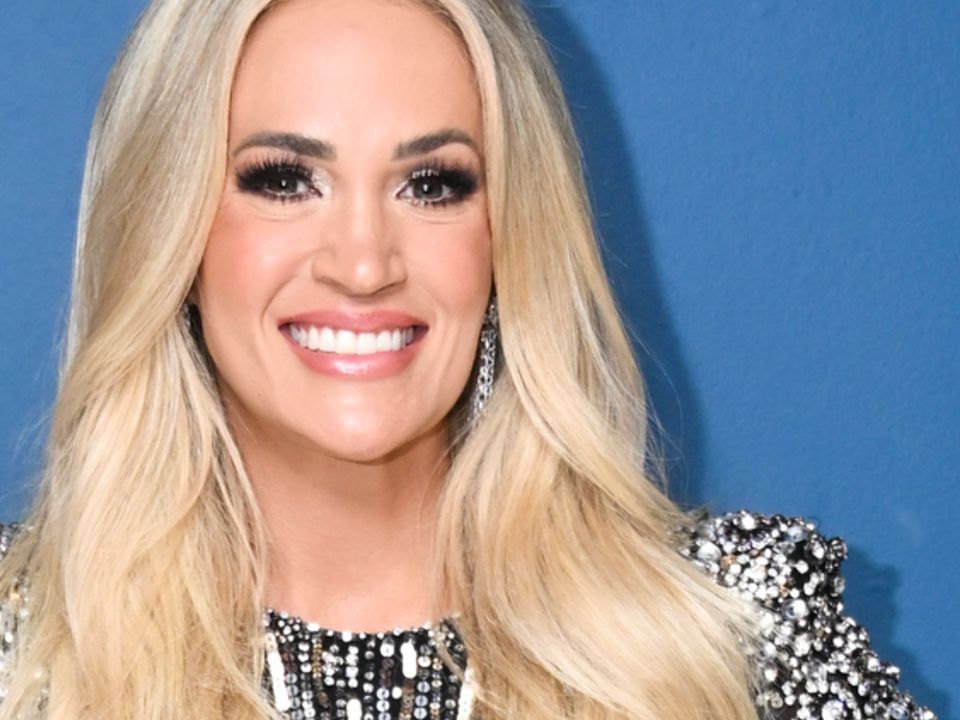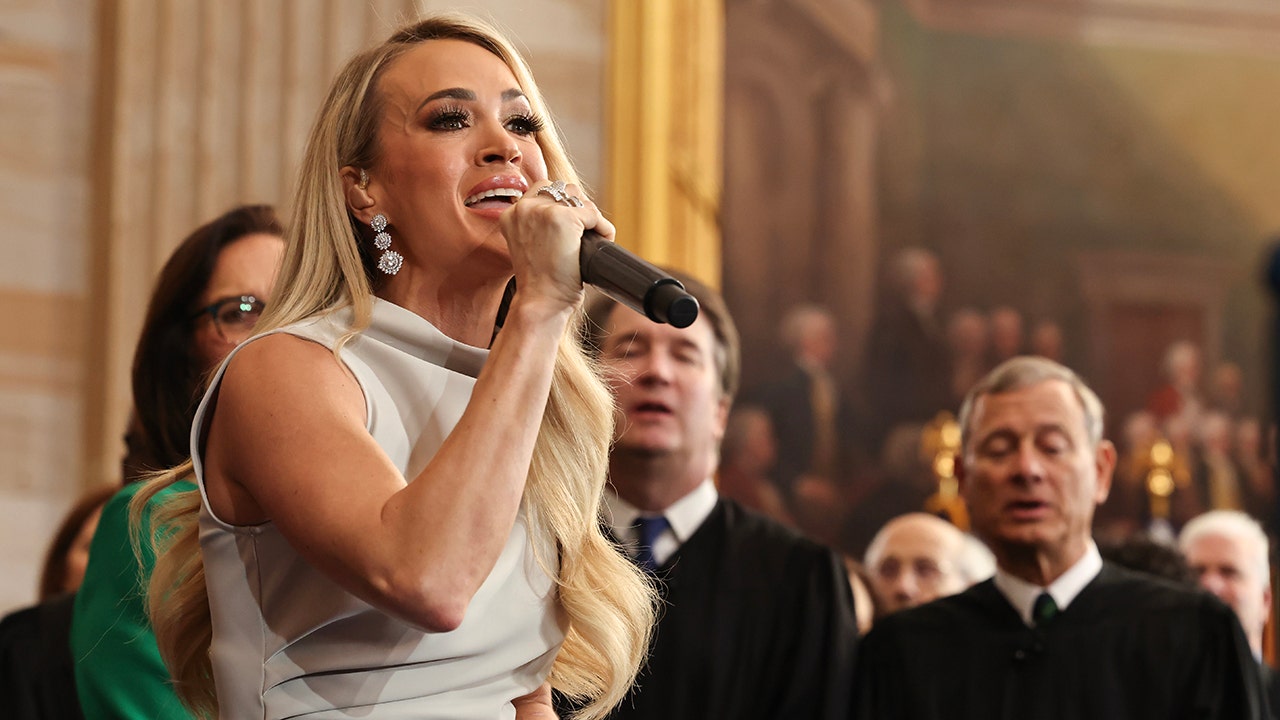“YOU DEFAMED ME ON LIVE TV — NOW PAY THE PRICE!” — Country icon Carrie Underwood has officially declared war on ABC and The View, slapping them with a jaw-dropping $50 million lawsuit after Whoopi Goldberg’s on-air jab allegedly crossed the line from opinion to malicious defamation. The courtroom clash is brewing, and insiders say this isn’t just about reputations — it’s about rewriting the rules of free speech on national television
Daytime TV drama escalates into a legal battle! Superstar Carrie Underwood is suing The View and ABC for a staggering $50 million, claiming “intentional, malicious defamation” after a controversial on-air comment. This lawsuit could redefine free speech boundaries.
2Facebook Caption: The line between satire and personal attack is under fire. A bombshell lawsuit from Carrie Underwood against The View could set a major precedent for how public figures are treated in media. Is this the start of a “war on broadcast brutality”?
Article:
Carrie Underwood Files $50 Million Lawsuit Against The View and ABC, Alleges “Intentional, Malicious Defamation”
New York, NY – The seemingly innocuous world of daytime television has been rocked by a monumental lawsuit. Country music icon Carrie Underwood has initiated legal proceedings against ABC and its flagship talk show, The View, seeking a staggering $50 million in damages. The superstar’s legal team is citing “intentional, malicious defamation” in response to an incendiary eight-word comment made by co-host Whoopi Goldberg, a move that has ignited a furious debate across media circles regarding the blurred lines of free speech, satire, and journalistic ethics in contemporary public commentary.

The controversy stems from a segment on The View where the hosts were engaged in their typical lively discussion, which reportedly veered towards Underwood’s public image, marriage, and career longevity. It was during this exchange that Whoopi Goldberg uttered the pivotal eight words that would send shockwaves through the entertainment industry: “When are you going to stop feeding the public a lie?”
Goldberg’s comment, interpreted as a direct assault on Underwood’s authenticity and a critique of her personal life, reportedly plunged the studio into an uncomfortable silence. While it may have been intended as a playful or provocative jab, it quickly became apparent that the boundary between lighthearted banter and personal attack had been decisively breached.
In the immediate aftermath, Carrie Underwood chose a path of calculated silence, opting against the common celebrity response of instant social media retaliation or hastily issued press statements. This silence, however, was not a retreat. It was a strategic maneuver that allowed a groundswell of public support to coalesce around her. Fans swiftly mobilized on social media, using the hashtag #StandWithCarrie, demanding accountability from The View and ABC. Within hours, the hashtag trended nationwide, escalating pressure on the network to address the incident.
After days of intense speculation, Underwood’s legal team unleashed the bombshell: a $50 million lawsuit against ABC and The View. The suit cites “emotional distress, reputational harm, and defamation,” contending that Goldberg’s remark was not a legitimate critique of Underwood’s work or public image, but rather a deliberate attempt to dismantle her hard-earned public persona and tarnish her reputation purely for the sake of ratings.
In a powerful statement accompanying the lawsuit, Underwood declared, “This isn’t just for me. It’s for every artist, creator, and public figure who has ever been humiliated for ratings. We pour our hearts into our work, and we deserve better than to be treated as disposable fodder for controversy.” Her words resonated deeply with many across the entertainment industry, fueling the growing sentiment that a “war on broadcast brutality” was underway.
News of the lawsuit ignited a widespread public outcry, with social media ablaze with comments condemning the perceived unfairness of targeting Underwood in such a damaging and public manner. Celebrities, musicians, and industry figures joined fans worldwide in expressing their solidarity with the country superstar.
Meanwhile, The View and its producers found themselves in damage control mode. Sources close to the network indicate that ABC executives were reportedly caught off guard by the swift and severe backlash to Goldberg’s comments. The legal department was reportedly working overtime, meticulously reviewing the language used and assessing the potential legal ramifications. The network eventually issued a brief statement expressing regret, but it was widely understood that the reputational damage had already been done.
This scandal has brought to the forefront the critical role of media personalities in shaping public opinion. While shows like The View are celebrated for their sharp commentary and bold opinions, the precise line between legitimate critique and unwarranted personal attack often remains elusive. This controversy has ignited a broader, crucial discussion about the ethics of public commentary and the immense power that television personalities wield in influencing public perceptions of celebrities, politicians, and everyday individuals alike.

The implications of Underwood’s lawsuit extend far beyond this isolated incident. Legal experts are keenly observing the case, noting that it could establish a significant precedent for how public figures, particularly women, are treated by broadcast media. Media attorney Janet Klein commented, “This lawsuit isn’t about stifling free speech—it’s about demanding a baseline of human decency and professional responsibility. When you have a platform that broadcasts to millions, your words carry immense power, and with that power comes consequences.”
Klein also voiced concerns about the rising trend of personal attacks being disguised as satire or entertainment. “We’re in a time when the boundaries between entertainment, journalism, and personal attacks are more difficult to distinguish. This case highlights the fine line between critique and cruelty in the media,” she added. If Underwood’s legal team prevails, it could embolden other public figures, especially women, to pursue legal recourse against media outlets for defamatory statements that undermine their character. This outcome could lead to increased scrutiny for prominent commentators and satirists, including figures like Stephen Colbert and Jimmy Fallon, forcing a re-evaluation of the potential legal consequences of their on-air remarks.
The scandal surrounding The View and Carrie Underwood shines a harsh light on a more troubling systemic issue within the broader media landscape: the normalization of character assassination under the guise of satire or comedy. While public figures are generally understood to be fair game for critique regarding their work and public personas, an unrelenting focus on their personal lives can rapidly cross into deeply harmful territory. For Underwood, this was perceived as more than just a single attack; it was interpreted as a calculated and sustained attempt to dismantle her reputation for the sake of higher ratings and manufactured controversy.
As the number of media personalities leveraging their platforms to target others continues to grow, it is becoming increasingly clear that the power of the press and television has never been more potent—or, arguably, more dangerous. For Carrie Underwood, her legal battle transcends mere personal vindication; it is a profound stand for restoring the dignity of public figures and demanding a higher degree of accountability from those who wield significant influence over public perception.
Carrie Underwood’s $50 million lawsuit is not merely about a single comment or one celebrity’s grievances. It reflects a deeper concern about the pervasive culture of cruelty that has seemingly crept into media discourse, where personal tragedies and perceived missteps are frequently exploited as fodder for entertainment. Underwood’s courage in confronting this public attack serves as a powerful reminder that public figures, regardless of their celebrity status, deserve a fundamental level of respect, and the media must be held accountable when they overtly cross ethical and legal boundaries.

In an era dominated by powerful media personalities, Underwood has taken a decisive stand, utilizing her voice to demand improved treatment—not just for herself, but for anyone who has been publicly humiliated for the sake of entertainment. Whether her legal team ultimately prevails or not, one outcome is certain: her lawsuit has ignited a necessary and vital conversation about the media’s profound responsibility to balance commentary with respect, highlighting the potent impact of both strategic silence and decisive legal action in the ongoing fight for dignity and human decency in the public sphere.





